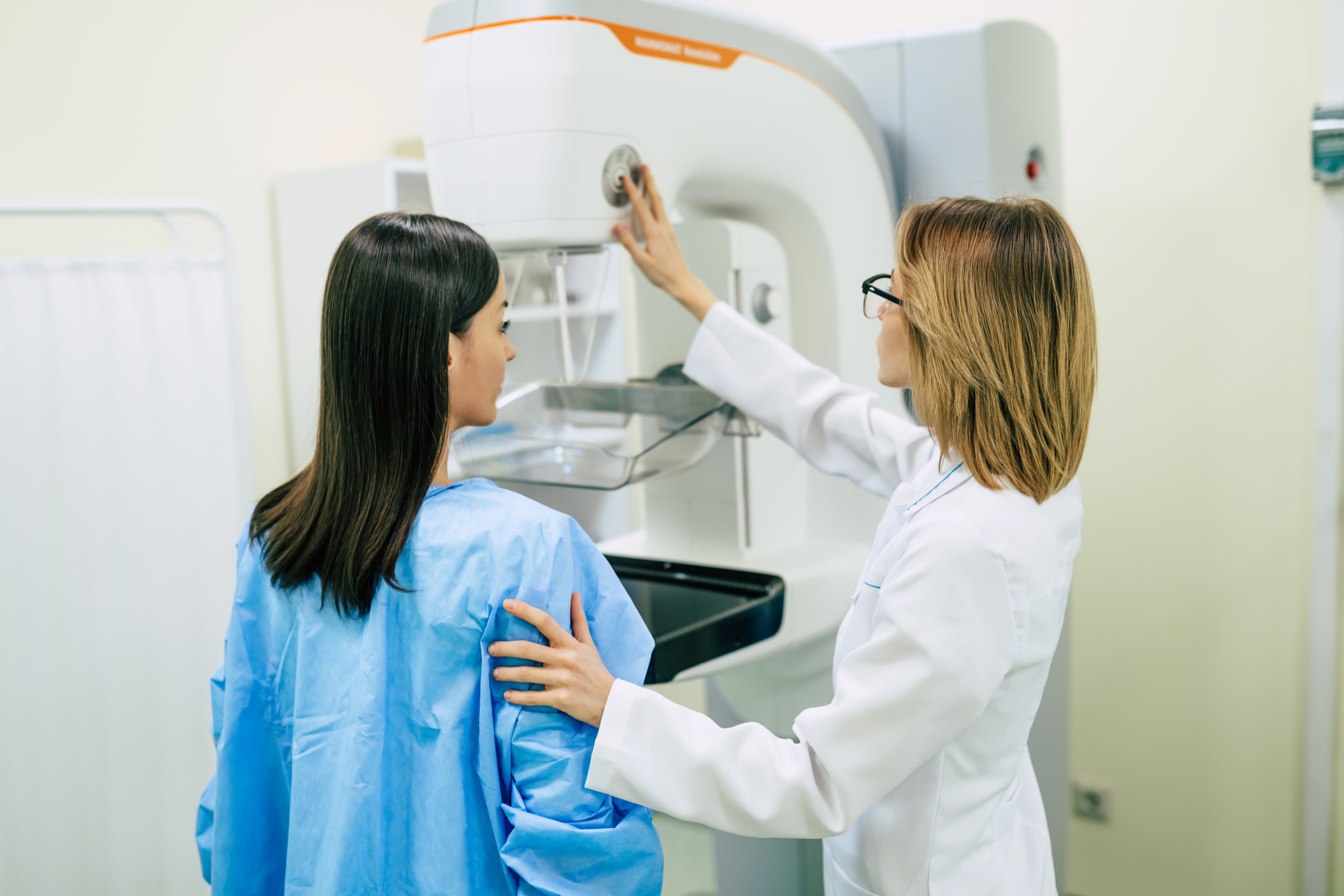What is a mammogram and how often do women need to get screened?
A mammogram is a specialized X-ray test of the breast to detect abnormalities that could put you at risk for cancer, which could be breast cancer or other breast irregularities. In recognition of Breast Cancer Awareness Month, we asked an OBGYN why regular screenings are so crucial.
How often do women need to get mammogram screening?
There are different guidelines from different organizations, but most recommend an annual mammogram screening for women over the age of 50. Some women might be advised to start screening at a younger age, especially if they have risk factors. The American Cancer Society says women age 40 to 44 should have the choice to start annual breast cancer screening if they wish to do so. The American College of OBGYN has a stronger recommendation to begin annual mammogram screenings at age 40. Women who are age 40-49 years old should talk to their healthcare provider about when to start screening and what screening interval is appropriate. Once you start your screening mammograms, it is important to stay on schedule.
Dr. Farah Shafi elaborated, "If you're skipping a mammogram screening, there is more of a window of time for a potential abnormality to grow. As clinicians, we've all heard of cases where people have had regular screening mammograms but then may skip one or two studies, and these aggressive types of cancers have formed. These cancers don’t discriminate based on time. Getting a mammogram gives you the option of being able to detect an abnormality at an earlier stage. "
One in eight women will develop breast cancer by the age of 75, so regular screening helps women find abnormalities at an early more curable stage.
What is one of the biggest misconceptions about mammograms?
I think a lot of people worry about the risk of radiation and exposure or that mammograms can cause cancer. But we've been doing mammograms for years and evidence speaks to the safety of this imaging. I think some people worry also worry that it is going to be painful. It may not be the most comfortable thing, but the discomfort is brief and has the potential for avoiding an adverse outcome. Look at your risks and benefits here: you are getting the benefit of breast cancer screening and early detection vs. that brief window of time you are uncomfortable. Also some women are concerned that mammograms are inaccurate. We know that mammograms are not perfect, but they are the best tool we have for screening and early detection of the population. Some women may be appropriate to have other types of screening (eg. MRI)—so speak to your provider about what is best for you.
What to know about mammogram coverage
Mass General Brigham Health Plan Mammographic Examination (Mammogram) Preventive breast cancer screening by a mammogram is covered, including 3D mammograms. Women must be age 40 or older or have risk factors that require screening at a younger age. Follow-up breast ultrasounds are also covered as preventive breast cancer screenings (instead of or in addition to a screening mammogram). Breast MRIs are covered as preventive breast cancer screenings when criteria are met.
